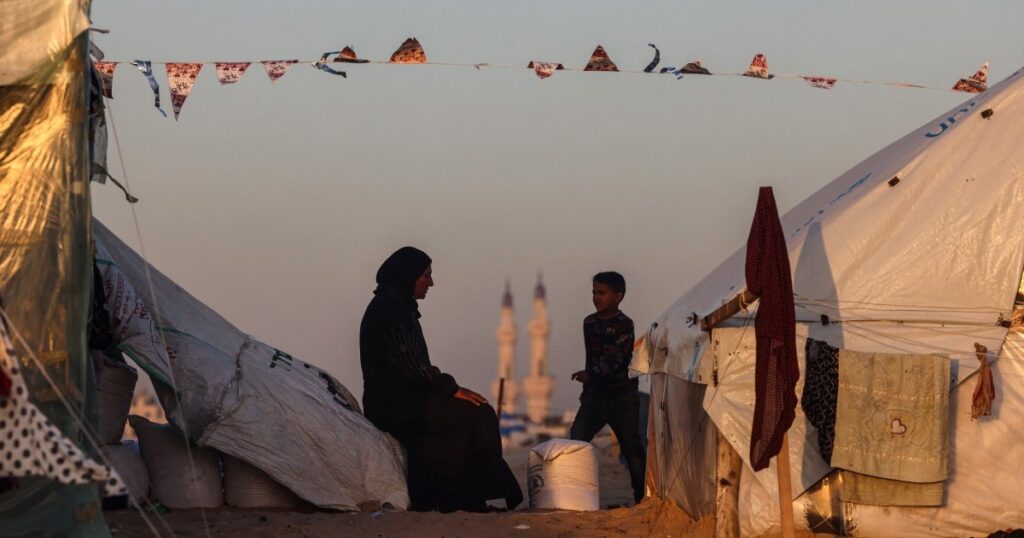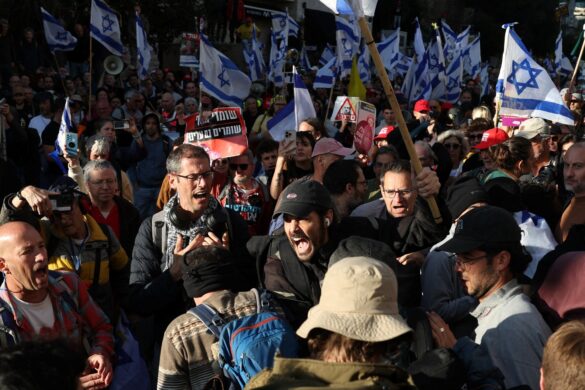The first day of Ramadan arrived on Monday like any other for Palestinians in war-ravaged Gaza: plagued by famine and disease, shivering in tents and threatened by bombs.
As the Muslim world welcomed the holy month and its customary daily fast, many Palestinians in Gaza faced bombardment that saw residents once again search through the rubble of destroyed homes in search of survivors and bodies. .
A United Nations report, citing the health ministry in the Hamas-ruled Gaza Strip, says 25 people have died of malnutrition and dehydration, most of them children, more than five months after fighting between Israel and Hamas.
The UN has reported particular difficulties accessing northern Gaza for food deliveries and other aid. Across the country, people feel the shortage even more during Ramadan.
In Rafah, a border town south of Gaza, where 1.5 million people have sought refuge, the usually hearty iftar, marking the end of the day’s fast, was replaced by “canned food and beans said Mohammad al-Masry, a displaced resident of Khan Younis. .
“We haven’t prepared anything. What do the displaced people have? said al-Masry. “We don’t feel the joy of Ramadan… Look at the people staying in tents in the cold.”
“We don’t know what we are going to eat to break the fast,” said Zaki Abu Mansour, 63, in his tent. “I only have one tomato and one cucumber…and I don’t have money to buy anything. »
Fighting raged across Gaza, even as UN Secretary-General Antonio Guterres called for “silencing the guns” during the Muslim holy month and said he was “dismayed and outraged that the conflict was continue.”
Hamas authorities have reported at least 67 people killed since Sunday, with more than 40 airstrikes across the territory.
Despite widespread deprivation, some found a way to celebrate the start of Ramadan, making meager decorations and distributing traditional lanterns between their tents.
In Rafah, dozens of people prayed in the ruins of a mosque hit by an Israeli airstrike a few days ago.
Many of Rafah’s displaced people are sheltering in a sea of makeshift tents. They sat on the ground between the structures, under a string of decorative lights, to break their fast.




